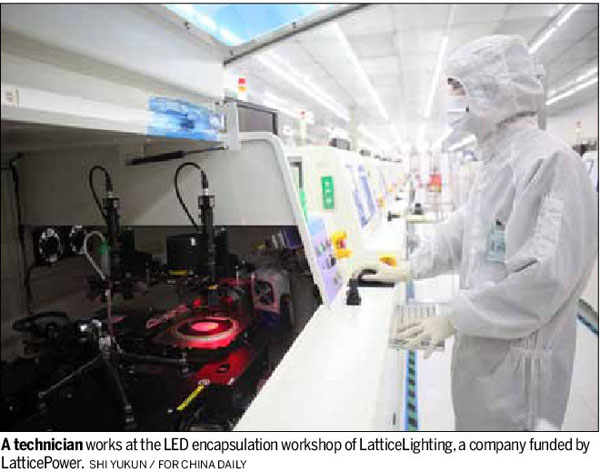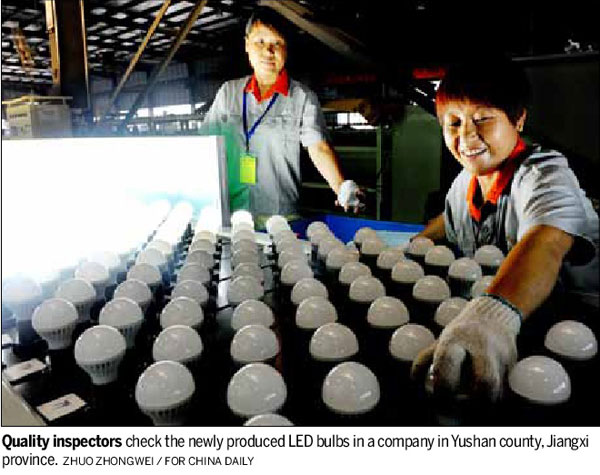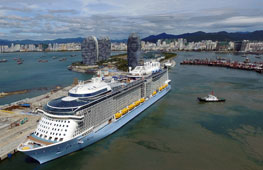Market-leading LED cluster established in Nanchang
Jiang Fengyi, vice-president of Nanchang University, showed no surprise or excitement when he learned his GaN/Si LED project became the only first prize winner of the National Technology Invention Awards in early 2016.
Born in 1963 from a peasant family in Yugan county, Jiangxi province, Jiang has a life philosophy of "more light, less heat" — just like the aim he set for his research projects. He explained that he will do more practical work and never get dizzy with success, like an ideal LED bulb that gives as much light and releases as little heat as possible to be energy efficient.
He added that the purpose of the research is not to win an award.
In 1993, Jiang began his LED research in the newly founded Materials Science Institute of Nanchang University. He expected the team would have made some breakthroughs in blue LED technology in 300 experiments, but after 300 experiments he found they were not even close to it — and 90 percent of their budget had been used.
He worked even harder and after 1,200 experiments, he succeeded in the development of blue LED tech in 2000.
"Although Jiangxi is a less developed province, I believe it can make some world-class achievements in science," Jiang said. "It is never smooth going undertaking scientific research. We have to find the right path and be brave enough to innovate."
After that, Jiang turned his eyes to a more challenging subject.
"Before 2002, our LED research had been following the Japanese and the United States' technical paths, and achieved a moderate level of success," said Jiang's student Wang Li. He added that the previous research had laid a solid foundation for their own innovation.
Jiang's team started research and development on the GaN/Si LED in 2003, the world's third commercial LED lighting technology, after the development of sapphire-based LED in Japan and silicon carbide-based LED in the US.
Jiang said that foreign teams had conducted researches on the GaN/Si technology for many years before them, but had failed and given up.
"The failure of foreigners does not mean the Chinese will fail, too," Jiang said.
After more than 3,000 experiments, the Chinese proprietary LED became a success in 2006.
They have also commercialized the technology by seeking investors internationally to found LatticePower Corp in the same year.
"Many technologies that perform well in the lab will show problems when industrialized," said Liu Junlin, a key member in the research team.
As a successful example of integrating research, education and industrialization, LatticePower was listed as one of the Global Top 50 Innovative Companies 2011 by the Massachusetts Institute of Technology's Technology Review magazine.
The company achieved revenue of more than 860 million yuan ($128.9 million) last year, increasing 13.7 percent year-onyear. Its CEO Wang Min said the company's fast growth has benefited from the GaN/Si LED technology, but its business has not stopped at simply producing the material itself.
It has carried out R&D on many LEDbased devices and applications since 2013 and now owns a series of subsidiaries covering the entire supply chain of the LED business.
"In addition, thanks to the Light Valley policy, many LED companies have been attracted to Nanchang, which is becoming an industry cluster as we had hoped," Wang said.
According to the Light Valley policy, issued in early 2016 by the provincial government, Nanchang will be built into a national LED industry center with global competitiveness in R&D, manufacturing and application.
The industry in Nanchang is expected to generate revenue of 100 billion yuan by 2020.
Wang Jian contributed to this story.















